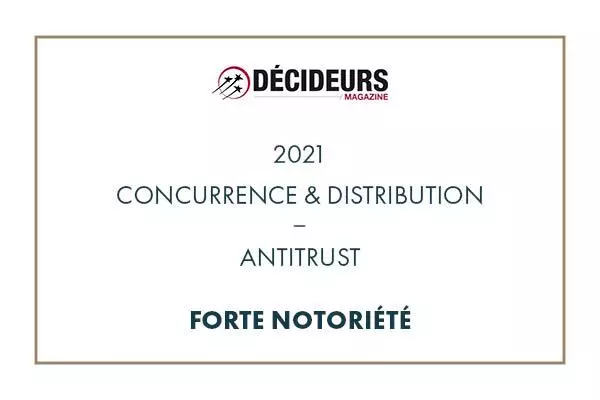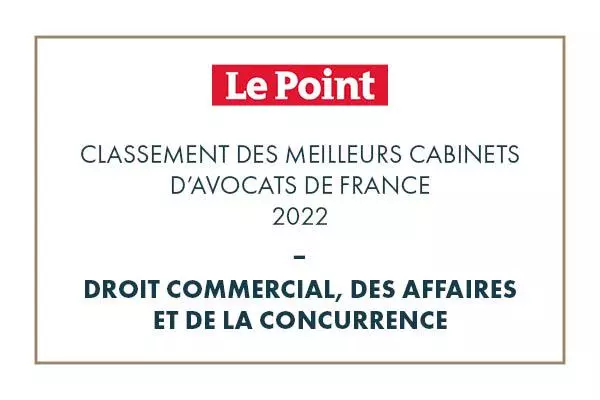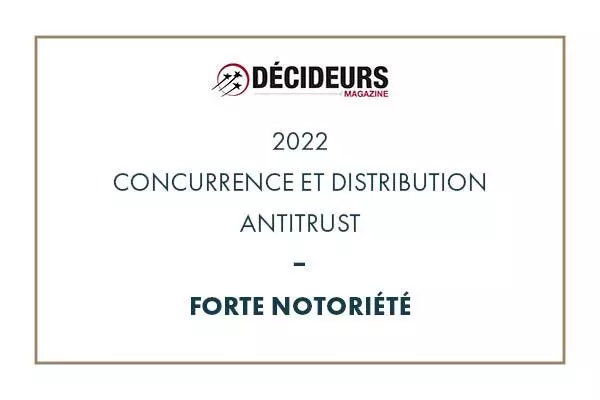How should alcohol advertising be regulated?
30 June 2023
Paris Court of Appeal, Pole 5, 11th Division, April 14, 2023, no. 21/07299
Don’t smile, they’re advertising alcohol. In a ruling handed down on April 14, 2023, the Paris Court of Appeal reiterates the rules applicable to alcoholic beverage advertising, taking up the now well-established case law of the French Supreme Court, which is more demanding than the law.
The facts were as follows: to promote its bottle of rum, the Havana Club brand had visuals published in a magazine and displayed in Paris metro stations showing a Havana (Cuba) bartender behind his bar, his face serious, preparing a rum-based cocktail.
The ANPAA (Association Nationale de Prévention en Aliquologie et Addictologie) considered that the visual, with its warm colors, incited the consumption of alcohol and violated the Evin Law by presenting information other than that specifically authorized, and brought an action against the brand before the Paris Court of First Instance, seeking a declaration that the advertising was unlawful and damages to compensate for the loss suffered.
In 2021, the Paris court rejected all ANPAA’s claims. Not content with this decision, she appealed. The Paris Court of Appeal therefore had to assess the legality of the disputed visual.
First, the judges recalled the requirements of the Loi Evin regarding advertising, which are of three kinds:
- The media for alcohol advertising are listed exhaustively: print media, radio, posters, trade catalogs, advertising vehicles, online communication services, and visits to production sites, trade fairs and specialized museums[1].
- The content of advertising, whether textual, visual or audio, is limited to the following information: the degree of alcohol by volume, the origin, the name, the composition of the product, the name and address of the manufacturer, agents and stockists, the method of production, the conditions of sale and the method of consumption of the product.[2]. References relating to the terroirs of production, awards obtained, designations of origin or geographical indications, as well as objective references relating to the color and olfactory and gustatory characteristics of the product, may also be added[3].
- The health warning “Alcohol abuse is dangerous for your health” must be visible.
The aim of these restrictions is to discourage the consumption of alcoholic beverages and thus combat related diseases, as alcohol is the second leading cause of avoidable death in France after tobacco[4].
In addition, the French Supreme Court (Cour de cassation) has consistently ruled that all information provided in connection with alcohol advertising must be objective.[5]even though the Loi Evin only specifies this objectivity for references relating to the color and olfactory and gustatory characteristics of the product. a contrario not apply to other elements[6].
In the light of this legislative and case law framework, the Paris Court of Appeal, after noting that the method of distribution was legal and that the health warning was visible, found that the disputed poster presented authorized objective information. In fact, the bartender was actually working in the Havana bar where the image was captured. This element related to the beverage’s geographical origin, distinguishing it from other rums produced in other countries. In addition, the image of the bar and a cocktail presents both a mode of consumption and a means of selling the product, making the image both informative and descriptive.
Lastly, the judges rejected the appellant association’s main argument concerning the use of warm colors to encourage consumption. They point out that the general impression conveyed by the ad is neither warm, attractive nor festive, with the barman not smiling, not moving and wearing “a serious face that cannot be described as pleasant“.
The judges therefore found that the advertising was lawful, confirmed the judgment and ordered the appellant association to pay the costs.
Although this decision is apparently in favor of less stringent control of alcohol advertising, its reference to the restrictive case law of the Cour de cassation actually indicates a perpetuation of the latter. The normative framework remains unchanged, but this decision demonstrates a certain adaptability of the very strict criteria imposed on advertisers of alcoholic products.
[1] CSP, art. L. 3323-2.
[2] CSP, art. L. 3323-4, al. 1.
[3] CSP, art. L. 3323-4, al. 2.
[4] Inserm, Alcohol and health, Paris, 2016.
[5] Court of Cassation, 1st Civil Chamber, May 20, 2020 – n° 19-12.278.
[6] Friant-Perrot, M., Garde, A. (2022), ” The Regulation of Alcohol Marketing in France : La loi Evin à trente ans “, Journal of Law, Medicine & Ethics, 50(2), 312-316. doi:10.1017/jme.2022.57.






